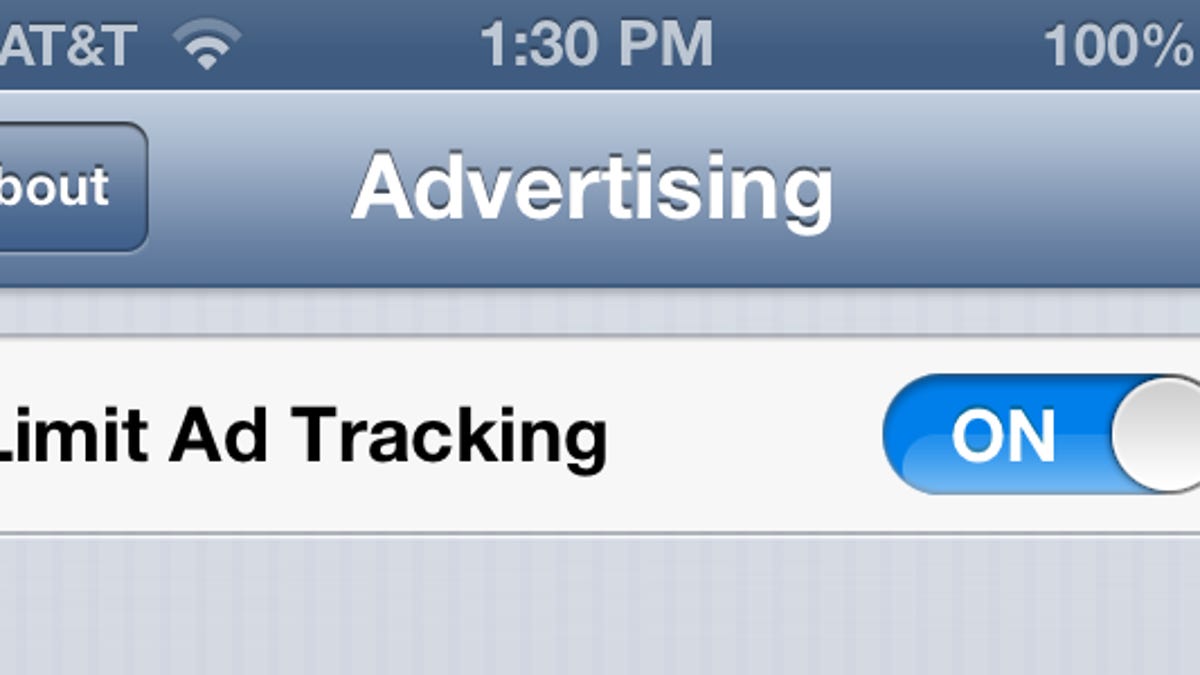Ad tracking 'blocker' comes to iOS 6
Apple's UDID is soon to be dead to advertisers, replaced by the Advertising Identifier. With it, you'll be able to limit targeted ads in iOS 6, but it won't be fully functional at first.

Apple has built into iOS 6 a new toggle that will let you prevent advertisers from hitting you with targeted ads, but slow implementation of its new Advertising Identifier number means you could still see targeted ads on your iPhone for the foreseeable future.
First reported by 9to5Mac, the Limit Ad Tracking option is designed to prevent advertisers from tracking your behavior on the phone. It's a lot like a phone-based version of Do Not Track, except one that advertisers will be forced to obey since iOS is a proprietary system.
The toggle is available in iOS 6 general settings menu. Per Apple's "learn more," section, Apple explains that you still might see targeted ads since not all ad networks will have switched to the Advertising Identifier by the time iOS 6 rolls out next week. According to 9to5Mac, the full text reads:
"iOS 6 introduces the Advertising Identifier, a nonpermanent, nonpersonal, device identifier, that advertising networks will use to give you more control over advertisers' ability to use tracking methods. If you choose to limit ad tracking, advertising networks using the Advertising Identifier may no longer gather information to serve you targeted ads. In the future all advertising networks will be required to use the Advertising Identifier. However, until advertising networks transition to using the Advertising Identifier you may still receive targeted ads from other networks."
So far, Apple has not publicly set a timeline for how long the transition will take, leaving the statement an open-ended one.
Sarah Downey, a privacy expert with the software company Abine, was skeptical of the new Advertising Identifier and noted that Apple doesn't disclose what the new system is actually based on. "I need them to tell me why it's not identifying because as we've seen from a lot other "non-identifying" pieces of data, they can identify you quite easily," she said. She wasn't particularly enthusiastic about the opt-out option, either. "If you're using the opt-out, [Apple] may no longer gather information to serve you targeted ads. To me, that says they may still collect your information to do things other than serve you targeted ads, like build databases about you to send you marketing or to sell to third parties."CNET has contacted Apple for comment and will update when we hear back.
Updated on Tuesday, September 18 at 12:50 p.m. PST with comment from a privacy expert. Apple has yet to reply to our queries.

